From rescuing rural hospitals to opening blood donor centers, Sloan Program students put knowledge to work

Kyle Kopec is reopening rural hospitals in Tennessee. Adrienne Mendoza is pioneering a new way to recruit Texans to donate blood. Ali Hamdani is bringing new light to the U.S. invasion of Iraq by reliving painful memories.
They are among the students pursuing an executive master’s in health administration (EMHA) through the Sloan Program in Health Administration in the Cornell Jeb E. Brooks School of Public Policy. EMHA students complete the degree in 18 months online and through two in-person sessions on Cornell’s Ithaca campus and an innovation trek to Boston.
The EMHA—the only top 10-ranked Ivy League program—welcomes health care professionals who have at least five years of professional experience, and each cohort average is 12-14 years.
“They bring impressive accomplishments, experiences, and goals to their studies,” said Sloan Program Director Sean Nicholson. “In this year’s class, the breadth of those experiences is remarkable, enriching classroom activities and creating bonds that will last long after graduation.”
Here are three such stories from this year’s class:
Kyle Kopec
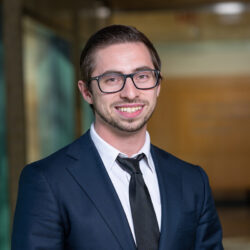 Kyle Kopec is Chief Medical Compliance Officer and Vice President of Government Affairs for Braden Health, a Florida firm that is reviving small hospitals in rural Tennessee. He works with government officials so abandoned or teetering public facilities can thrive or at least survive under private ownership.
Kyle Kopec is Chief Medical Compliance Officer and Vice President of Government Affairs for Braden Health, a Florida firm that is reviving small hospitals in rural Tennessee. He works with government officials so abandoned or teetering public facilities can thrive or at least survive under private ownership.
NPR reported on a media tour of a hospital Braden acquired and reopened in Erin, Tennessee: “As Kopec bounced through the Erin hospital’s halls, he greeted nurses and clerical staff by name with a confidence that belies his age and experience. He tells anyone who will listen that rural hospitals require specialized knowledge.
‘They’re not the most complicated things in the world,’ he explained. ‘But if you don’t know exactly how to run them, you’re just going to run them straight into the ground.’”
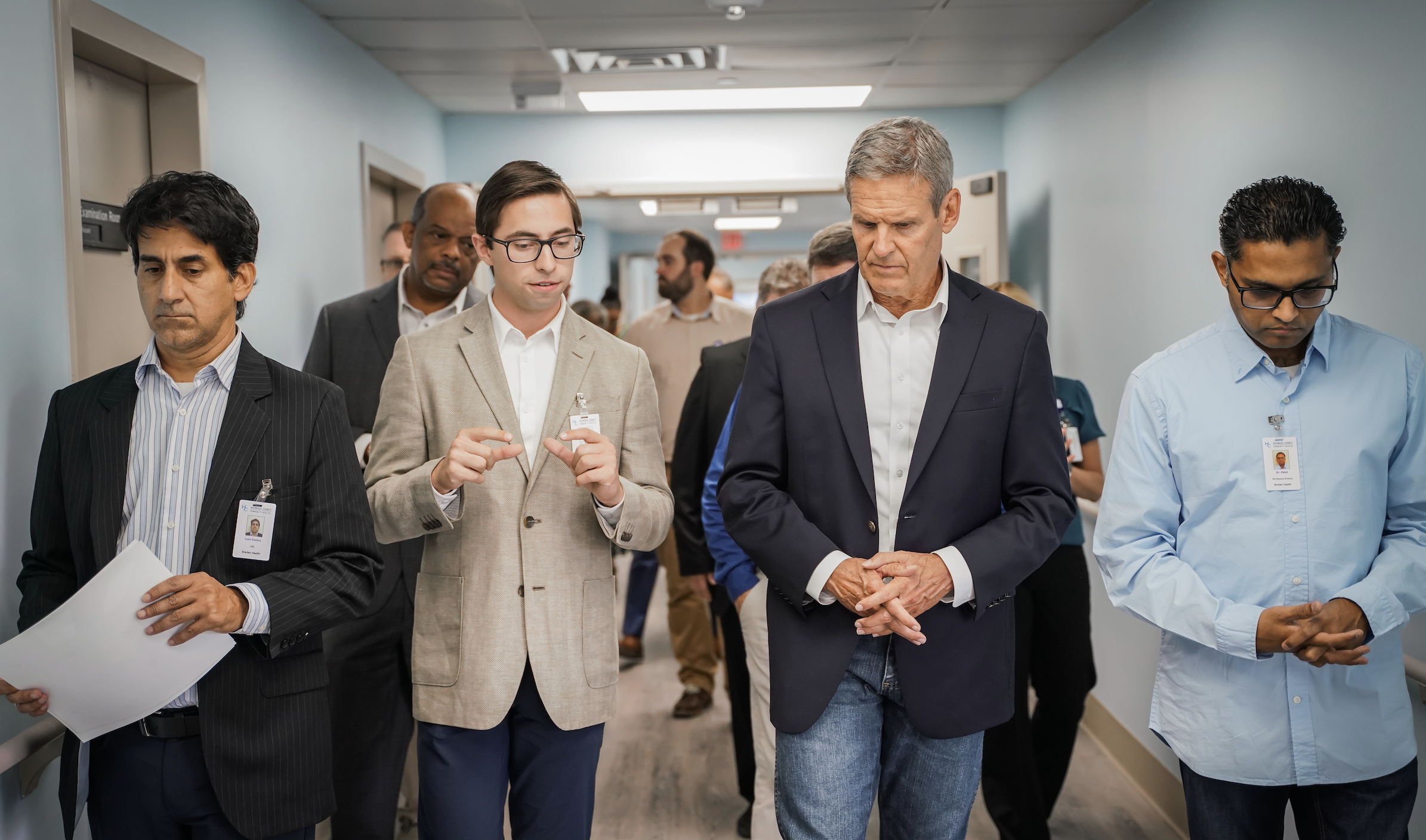 As part of his EMHA studies, Kopec is advancing policy changes and government relations strategies that would revive distressed or closed hospitals. The effort is worthwhile, as Kopec explained in an interview with Nashville’s WTVF: “We know we can make a difference. All of us are from rural areas, we’ve experienced what it’s like without access to health care services, we’ve lost friends, we’ve lost family members, and we know how to fix it.”
As part of his EMHA studies, Kopec is advancing policy changes and government relations strategies that would revive distressed or closed hospitals. The effort is worthwhile, as Kopec explained in an interview with Nashville’s WTVF: “We know we can make a difference. All of us are from rural areas, we’ve experienced what it’s like without access to health care services, we’ve lost friends, we’ve lost family members, and we know how to fix it.”
Adrienne Mendoza
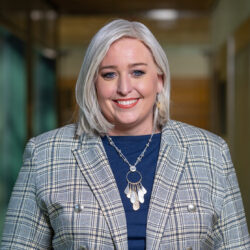 Adrienne Mendoza is Chief Operating Officer of South Texas Blood & Tissue in San Antonio, Texas, a subsidiary of BioBridge Global She leads a team responsible for securing and transporting donated blood and then making sure it is available in sufficient supply at a community’s worst moments.
Adrienne Mendoza is Chief Operating Officer of South Texas Blood & Tissue in San Antonio, Texas, a subsidiary of BioBridge Global She leads a team responsible for securing and transporting donated blood and then making sure it is available in sufficient supply at a community’s worst moments.
One of those was the school shooting in Uvalde, Texas. Mayah Zamora, 10, was injured and received a lifesaving transfusion. Mendoza arranged an event to celebrate Mayah’s recovery and the donors who made it possible. “You would not know meeting her that she is the survivor of unthinkable violence perpetrated on the most innocent,” Mendoza said in a television interview. “It was the blood given by generous donors in the days ahead of Uvalde that was ready for Mayah that tragic day.”
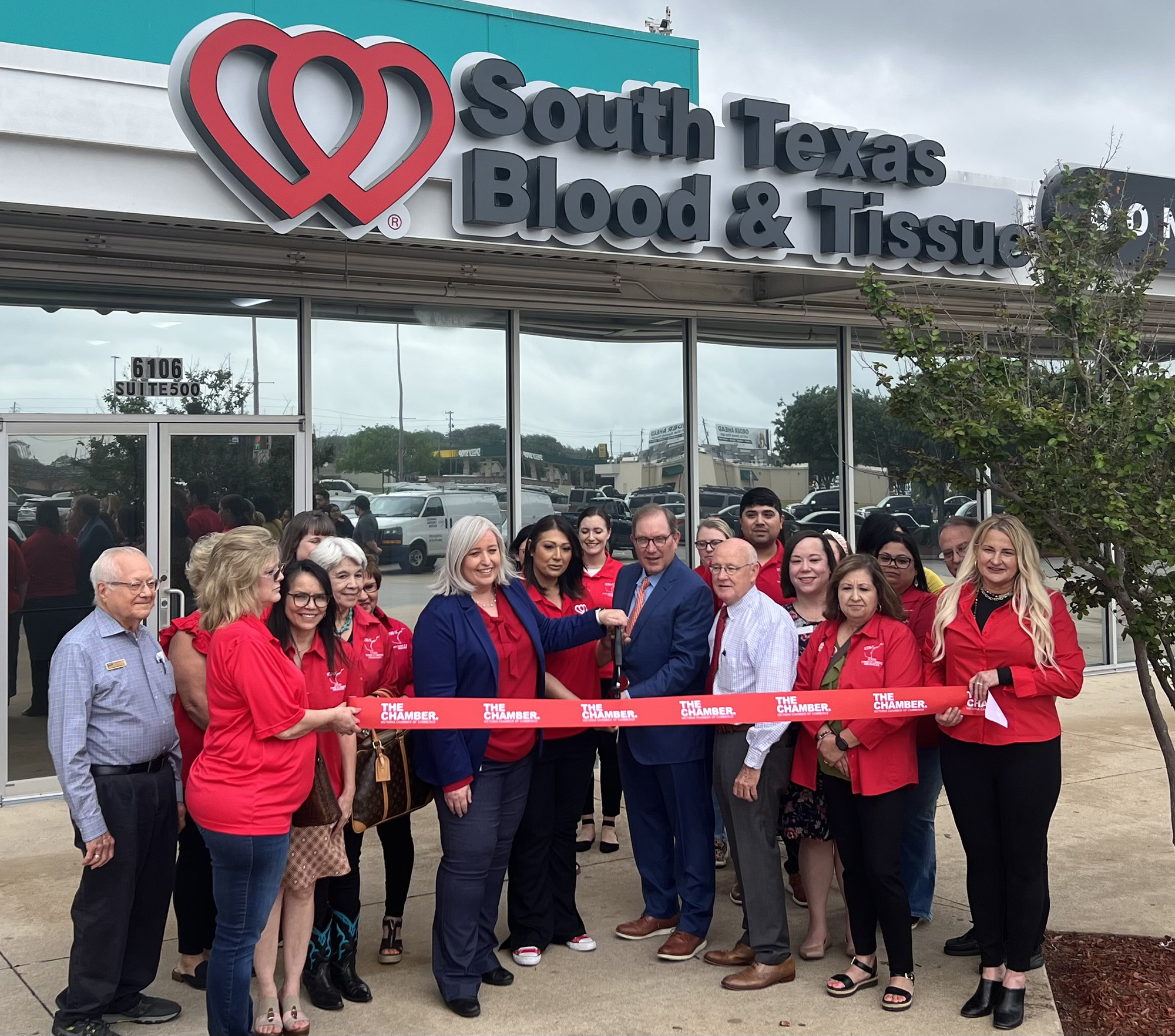 The challenge is that there aren’t enough generous donors. As part of her EMHA studies, Mendoza is learning the steps behind pioneering a new way to secure donations. Rather than asking people to go to a traditional blood donation center in a dull and distant stand-alone building, Mendoza and her team envisioned opening blood donor rooms right next to booming Texas businesses such as Buc-ee’s Travel Centers, Whataburger restaurants, and H-E-B supermarkets. The first donor room opened in late March at the H-E-B Plus in Victoria. It is brightly lit, offers a fun atmosphere, meets donors where they are and will put her EMHA coursework to an immediate test. As she told her staff on the day she took over as COO: “You can’t progress and grow and forge your capabilities without accepting a challenge and be willing to struggle a bit.”
The challenge is that there aren’t enough generous donors. As part of her EMHA studies, Mendoza is learning the steps behind pioneering a new way to secure donations. Rather than asking people to go to a traditional blood donation center in a dull and distant stand-alone building, Mendoza and her team envisioned opening blood donor rooms right next to booming Texas businesses such as Buc-ee’s Travel Centers, Whataburger restaurants, and H-E-B supermarkets. The first donor room opened in late March at the H-E-B Plus in Victoria. It is brightly lit, offers a fun atmosphere, meets donors where they are and will put her EMHA coursework to an immediate test. As she told her staff on the day she took over as COO: “You can’t progress and grow and forge your capabilities without accepting a challenge and be willing to struggle a bit.”
Dr. Ali Hamdani
Dr. Ali Hamdani directs international patient services for Duke University Hospital in Durham, North Carolina. The name may be familiar if you listen to NPR or closely followed the U.S. invasion of Iraq 20 years ago. Hamdani was a medical student in Baghdad when the conflict began. With cruise missiles landing nearby, he piled his mother and sister and all their belongings into a small car and drove more than 100 miles to a new home. There was no room for two Great Dane dogs that he cared for although they belonged to his brother. Despite the danger, Hamdani drove back into Baghdad every other day to feed and water the dogs. “I don’t like to let people down,” he said, recalling his wartime memories in a recent New York Times First Person podcast with journalist Lulu Garcia-Navarro. Hamdani was a guide, translator, and producer for Garcia-Navarro as the war raged. He narrowly escaped death when NPR’s armored car was targeted with a so-called sticky bomb.
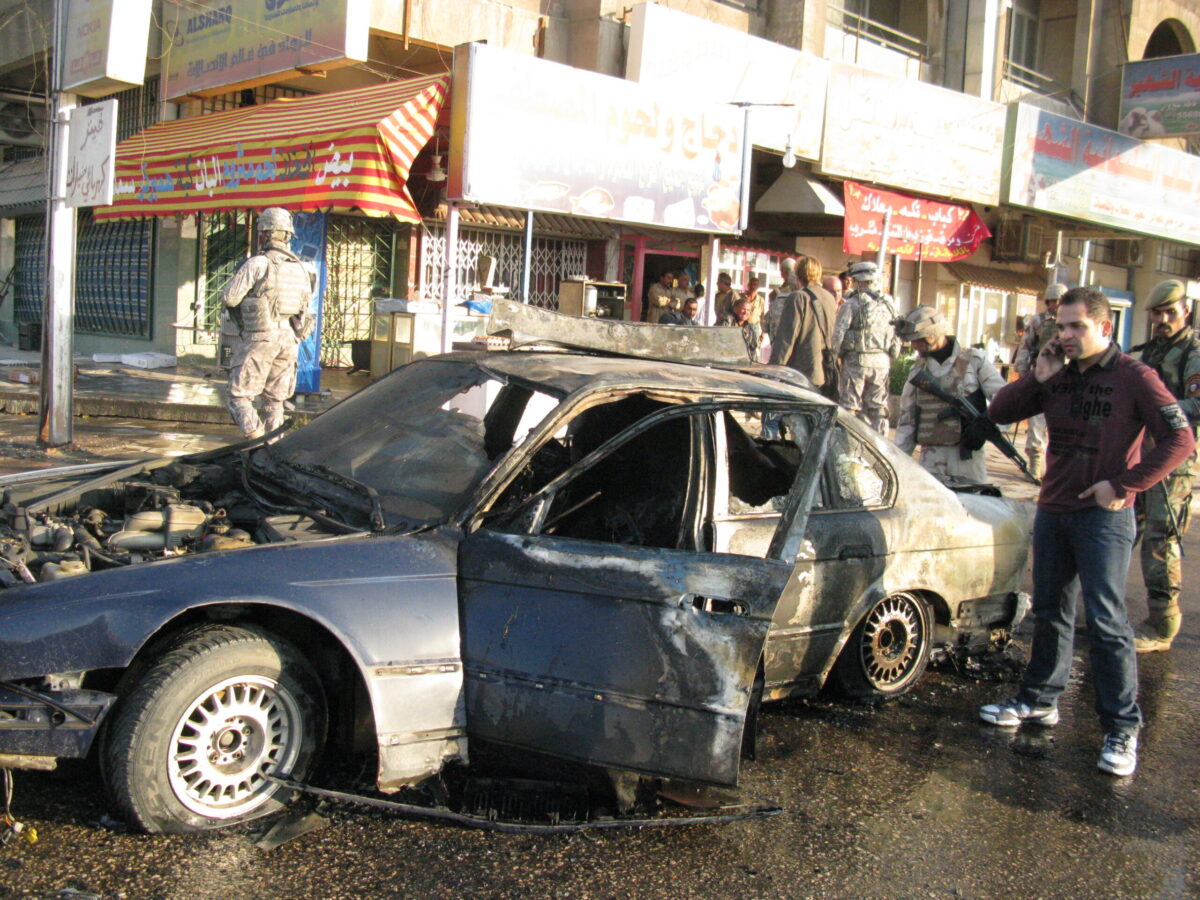 In 2010, he fled Iraq and settled in Raleigh as a refugee. It was hard. He didn’t know how to apply for a job. Eventually, Hamdani landed a position as an emergency services interpreter. In time, that led to the position at Duke Hospital where he facilitates care for international patients and their array of ethnic, religious, and cultural customs, including dietary and religious observances.
In 2010, he fled Iraq and settled in Raleigh as a refugee. It was hard. He didn’t know how to apply for a job. Eventually, Hamdani landed a position as an emergency services interpreter. In time, that led to the position at Duke Hospital where he facilitates care for international patients and their array of ethnic, religious, and cultural customs, including dietary and religious observances.
As part of his EMHA studies, Hamdani is learning the fine points of a U.S. health care system different from what he knew in Baghdad. He wants to grow in a career focused on not letting people down: “Since I am the one who had the chance to get this, I have to do it so well, and make everyone who knows me proud of me and to be proud of myself at the end,” he said in an NPR interview.
Hamdani, Mendoza and Kopec have every reason to be proud. With their EMHA classmates, they study side-by-side, in Zoom sessions and on campus – intent on bringing knowledge and heart to the provision of health care in the future, even as they do precisely that right now.
